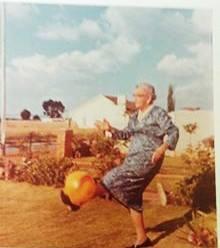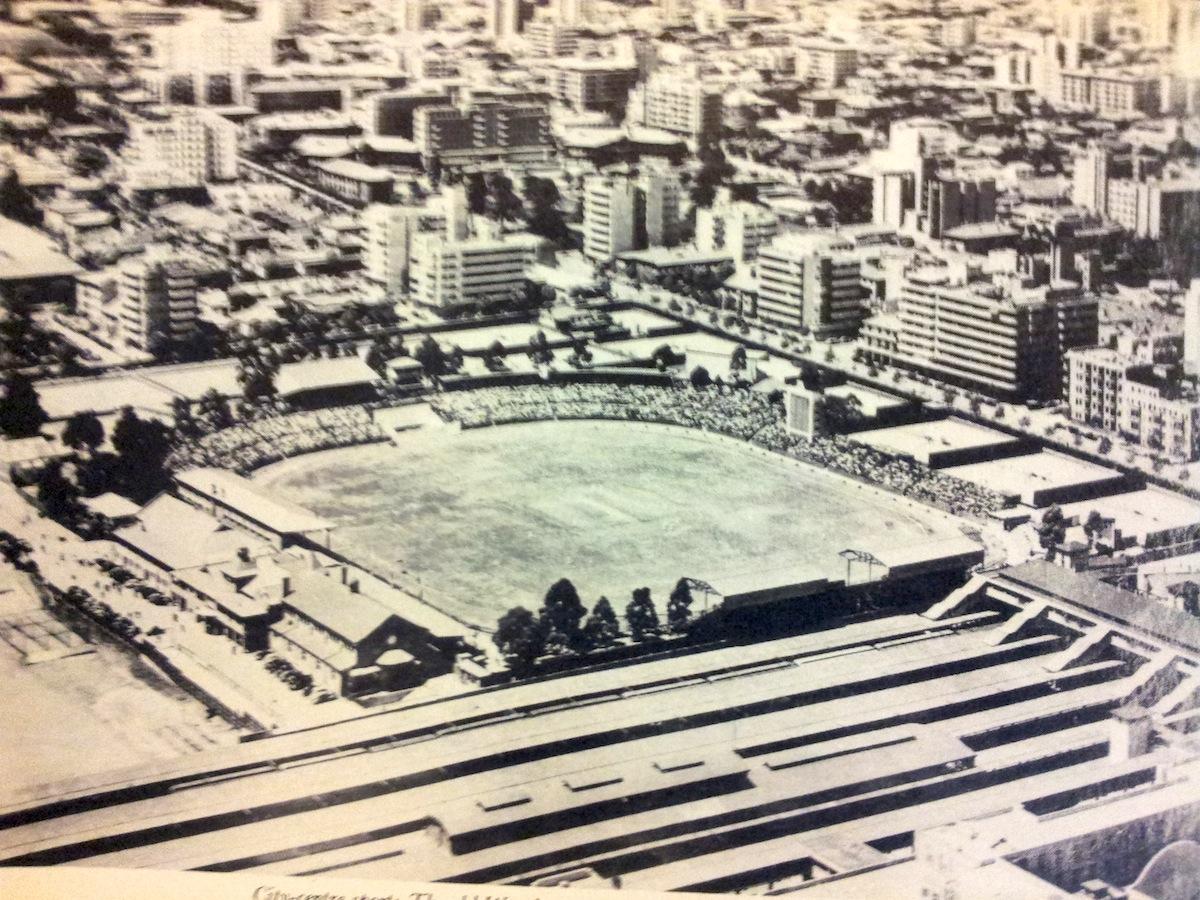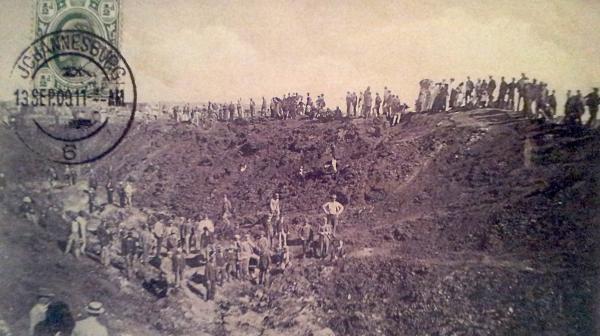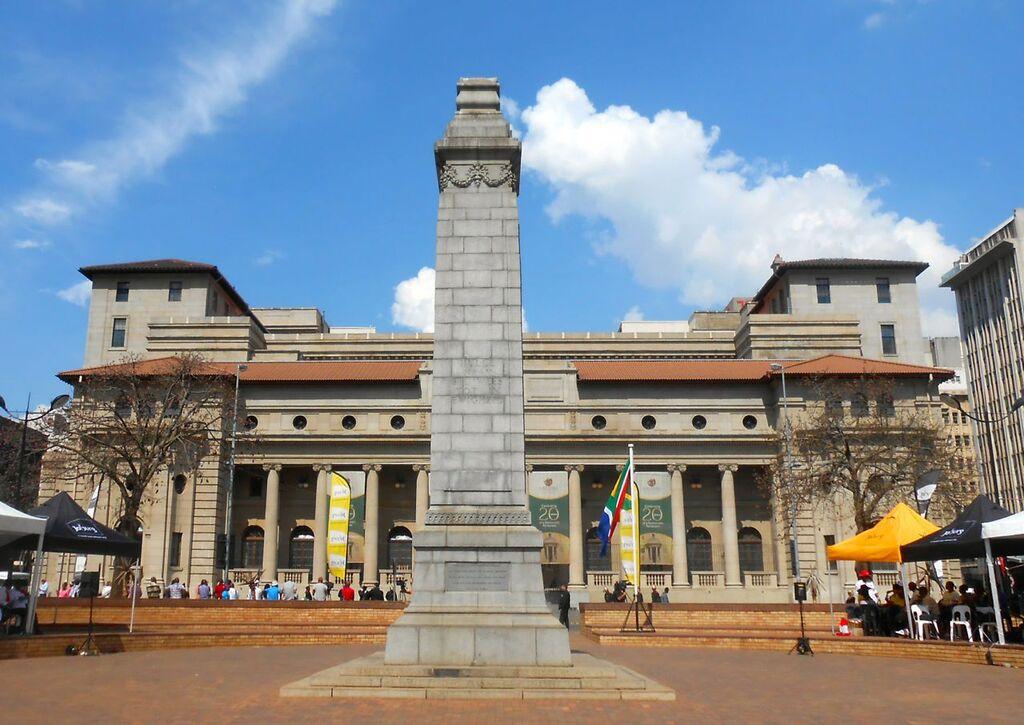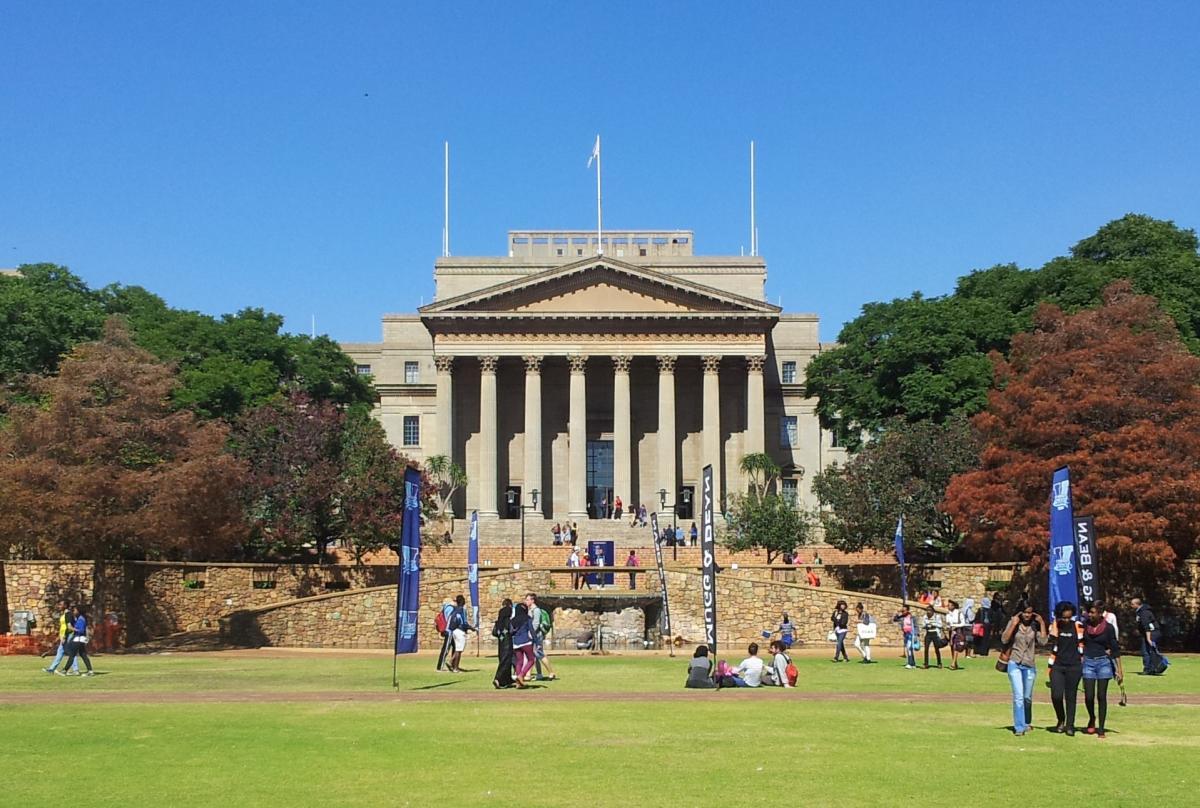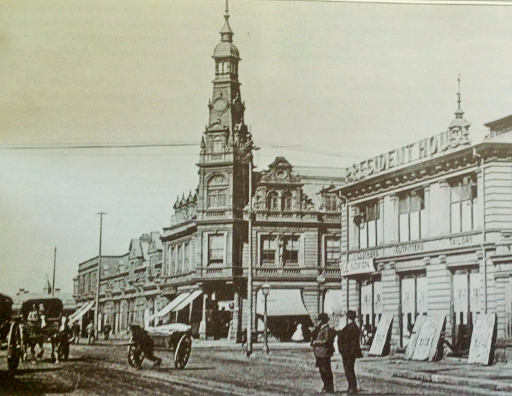
Disclaimer: Any views expressed by individuals and organisations are their own and do not in any way represent the views of The Heritage Portal. If you find any mistakes or historical inaccuracies, please contact the editor.
The article below tells the remarkable story of Constance Wood's experiences living in early Johannesburg. It was compiled by G. Le Roy and appeared in a leading newspaper in the 1950s. Thank you to Pam Marais, granddaughter of Connie, for sending it through.
"Connie Madcap" was what they called little Miss Williams when she arrived in Johannesburg, age seven, by mule wagon from Kimberley in 1889. She was always dancing and skipping, for she was a strong and lively little girl.
Connie on her 90th Birthday in 1970! (Pam Marais)
She needed her childish strength, according to the story told to me by her older self, Mrs Connie Wood, recently. Mrs Wood is a neat old lady of well over 70. "I've quitened down with the years" she said. But there is still a twinkle in her eye as she recalls the time when she was Connie Madcap and led a life of work so hard that it would horrify the modern generation in Johannesburg.
"Young people these days? They expect everything to be done for them." We shook our heads over the present day Young Idea.
Connie went shopping in the early morning, matching buttons and material for her mother, the leading dressmaker in early Johannesburg. Then came lessons at the school run by the sister of the late Prof. John Orr.
After school Connie was housekeeper, family shopper, water carrier and errand runner for her mother. Her mother, busy with silks and satins, stitched away until four a.m. most nights, and tired little Connie sat by and threaded needles so that there would be no waste of time.
Carriages lined the street outside their home, bringing fashionable women who wanted the latest styles and the nine gored skirts, so elaborate to make, of the 1890s.
Sewing for the fashionable clientele was done at night. In the daytime Connie's mother (Catherine Cleveland - nee Ryan) stitched away for visiting operatic and theatrical companies in the early theaters such as The Globe, The Gaiety and for Fillis's Circus.
Connie used to take her lunch to the theatre and watch rehearsals as her mother sewed. She liked the operas best. "I could sing all the songs" she told me.
The glamour compensated for Connie's hard work. Housework in early Johannesburg was accomplished with no labour saving devices. There was no water laid on. At one time, Connie's family lived near a sprint (possibly near Sans Souci) and all the children in the neighborhood went with their buckets and filled them, surrounded by the local cows and horses and by the animals from Fillis's Circus, who came to drink. It was all very friendly.
On other occasions she chased the water cart in the street and sometimes she ran so hard that she fell down with her bucket, like Jack and Jill and grazed her knees. But when she had got the water she walked carefully. It was valuable, for half a crown a bucket.
Precious Water
Working families like Connie's, could not do their washing-up in soda water as they did at the Rand Club during the drought (1898). She knew the washing-up was done this way because her stepfather (Henry Arthur Cleveland), was librarian at the Club and told her so. When it rained her family collected rain water from the roof in home made drain pipes, and kept it in baths covered with sheet iron. Sometimes this water was covered with dust an inch think but no one thought of throwing it away. They skimmed off all the dust and used the precious liquid.
Musician
The versatile Mr Cleveland, Connie's stepfather, was a musician as well as a librarian. He did other jobs too, from time to time. One of these was to assist in laying out the Wanderers Sports Ground. Connie used to carry his breakfast to him there, scrambling up and down the new cutting for the railway - the lines had not yet been laid, but the "donga" for them was quite a hazard.
Old Wanderers from above
She watched him lay the bicycle track, scene of so much subsequent excitement, and helped him plant the famous gum trees that were cut down only when the Wanderers was converted into the Johannesburg Railway Station. She often wondered, later, which of the towering trees had been planted by herself.
She saw people shooting at the clouds to try make rain. She watched the famous ""Professor Price"" ascending with the balloon over the open veld of Orange Grove on Sundays, and over the Wanderers on Wednesdays (1893).
Her stepfather was a member of the band that played as the intrepid professor made these ascents and Connie watched, round eyed, as he dangled from a parachute attached to the balloon.
She watched him plunge his knife into the balloon and cut himself adrift to descend by parachute while the balloon, issuing smoke, came down just anywhere like a piece of black rag.
The Price's lived next door to the Clevelands, and an unromantic aftermath to these ascents was the patching of the balloon by poor Mrs Price, who had to spread the vast "black rag" on a vacant lot nearby to search for the rent.
At one time Connie and her family lived opposite the gasworks. "What an explosion there would be if those cylinders blew up" her mother was fond of saying. "We'd all be blown to smithereens!"
One day a terrific explosion occurred. Connie was flung right across the room. Her mother peeling vegetables in the kitchen, shouted out that the gas cylinders had exploded at last. But when Connie looked, the gasworks were just as usual. Soon she saw a stream of people going in the direction of Braamfontein. "Something terrible has happened", she told her mother. (19 Feb 1896)
Dynamite
It had! It was the famous dynamite explosion in Braamfontein with the dreadful destruction and loss of life to those in the vicinity.
Braamfontein Dynamite Explosion (A Johannesburg Album)
She remembers the time of the Jameson Raid (Dec/Jan 1895/96), and the consequent barricading of shops. Food was issued at depots, and Connie, with her basket, went to collect it. It was bully beef one day and fresh meat the next. "I used to say that we had had bully beef the day before, so I always managed to get fresh meat" she confessed ingeniously.
Cheapjacks on the Market Square, Madame Patti singing at the Wanderers Club, a fancy dress carnival for musicians, for which her mother made her stepfather a clown's suit and painted his face to match - ""none of the musicians recognized him"" - and many other events are remembered by Connie Madcap. She recalled how her mother, needle and scissors in hand, used to attend all the big balls in case the belles had to be sewn into the elaborate gowns she made for them.
Toy Soldier
When the theatrical company Wheeler and Edwards, bought "La Poupee" to Johannesburg, Connie appeared as a toy soldier and Mr Wheeler wanted to take the little girl back to England as a permanent member of the Company but her mother would not let her go.
It was a disappointment but Connie was used to taking the rough with the smooth. This was a philosophy that stood her in good stead later on in life when she was Mrs Wood and her husband a builder, was out of work during the Depression. There were 10 children by that time, who took a lot of feeding. A fitting tribute to the late Mr Wood, Connie's husband, is the Johannesburg Cenotaph, of which he was the builder. He also helped to build the University if the Witwatersrand.
Johannesburg Cenotaph (The Heritage Portal)
Wits Great Hall (The Heritage Portal)
Connie too, helped to build, though her memorial will not be a tangible one. It will be one of colourful memories, and the work of a child towards the development of a city. It will also be the human one of 10 children, 25 grandchildren and the great grandchildren so precious to her - citizens, as she is, of seventy year old Johannesburg.
Comments will load below. If for any reason none appear click here for some troubleshooting tips. If you would like to post a comment and need instructions click here.

